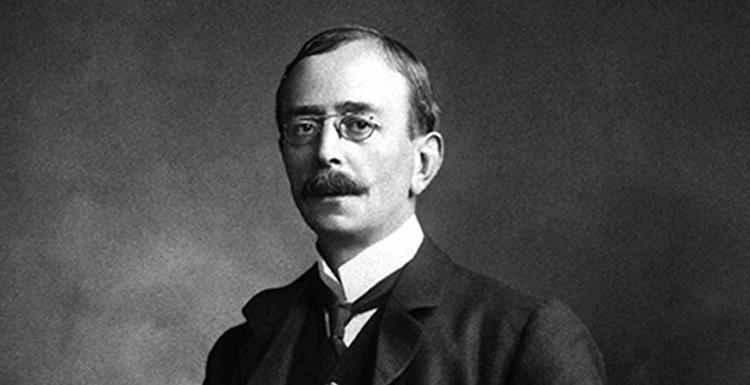Sir Charles Scott Sherrington was a famous English neurophysiologist, bacteriologist, histologist and pathologist. He was awarded the Nobel Prize in Physiology or Medicine with Edgar Adrian in 1932.
Early life
Charles Scott Sherrington was born on November 27, 1857, in London, England. His father died when Sherrington was a child. Sherrington’s mother later married Dr. Caleb Rose, a classical scholar and a noted archaeologist. As a boy and a young man Sherrington was a eminent athlete.
Education
Charles Scott Sherrington attended Queen Elizabeth’s School in Ipswich and later Gonville and Caius College, Cambridge. In 1876 he studied medicine at St Thomas’s Hospital and in 1878 he passed his primary examinations of the Royal College of Surgeons. In 1880 he began studying physiology at Gonville and Caius and he received his bachelor’s degree in 1883. The same year he was appointed demonstrator at Caius College, Cambridge. Between 1895 and 1913 he was a Professor of Physiology at the University of Liverpool. Afterwards he was a Professor of Physiology at Oxford (between 1913-35).
Achievements
Sherrington dedicated a huge part of his life to the study of the nervous system. In 1906 he published ‘The Integrative Action of the Nervous System’ put the field onto a new plane with the realization that the unit reaction of the nervous system was the simple spinal reflex. Sherrington explained that the nervous system acts as the coordinator of various parts of the body and that the reflexes are the simplest expressions of the interactive action of the nervous system, enabling the entire body to function toward one definite end at a time. In the next forty years he published over 200 papers, most of which were quite important. Besides the study of the nervous system, Sherrington was also very interested in researching bacteriology, and histology, the formation of scar tissue. In 1932 he shared the Nobel Prize in Physiology or Medicine with Edgar Adrian. He was President of the Royal Society between the years 1920 and 1925.
Later life
Charles Sherrington retired from Oxford in 1936. Afterwards he moved to his childhood town of Ipswich, where he built a house. While there he continued to work on his poetic, historical, and philosophical interests. He published one volume of poems called ‘The Assaying of Brabantius’. From 1944 until his own death he was President of the Ipswich Museum. He had a problem with a condition called rheumatoid arthritis, which put him in a nursing home in 1951. Charles died in March 1952, aged 94.
Charles Scott Sherrington quotes
“That our being should consist of two fundamental elements [physical and psychical] offers I suppose no greater inherent improbability than that it should rest on one only.”
“The terminal path may, to distinguish it from internuncial common paths, be called the final common path. The motor nerve to a muscle is a collection of such final common paths. ”
“As followers of natural science we know nothing of any relation between thoughts and the brain, except as a gross correlation in time and space.”
“Natural knowledge has not forgone emotion. It has simply taken for itself new ground of emotion, under impulsion from and in sacrifice to that one of its ‘values’, Truth.”

